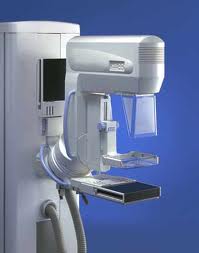 Mammograms, whose goal is to find breast cancer, might raise the risk of developing the cancer in younger women whose genes place them in a higher risk category for developing the disease. This is according to a new study by leading cancer agencies in Europe.
Mammograms, whose goal is to find breast cancer, might raise the risk of developing the cancer in younger women whose genes place them in a higher risk category for developing the disease. This is according to a new study by leading cancer agencies in Europe.
The radiation emitted from mammograms as well as other tests that included chest radiation could be harmful to the women and having an MRI is a safer from of screening the females under 30 years of age who are in the high risk category due to gene mutations, said the study’s authors.
The study did not prove a link between breast cancer and radiation, but is one of the largest studies to look into the issue.
Screening tests for breast cancer are proven to save women’s lives and are beneficial for women older than 50 who are at average risk of developing breast cancer. However, experts are split as to their value in women who have not yet reached 50 years of age.
Some prior studies have suggested that women who possess the genetic mutation might be more sensitive to receiving radiation since the genes in question deal with fixing problems with DNA.
